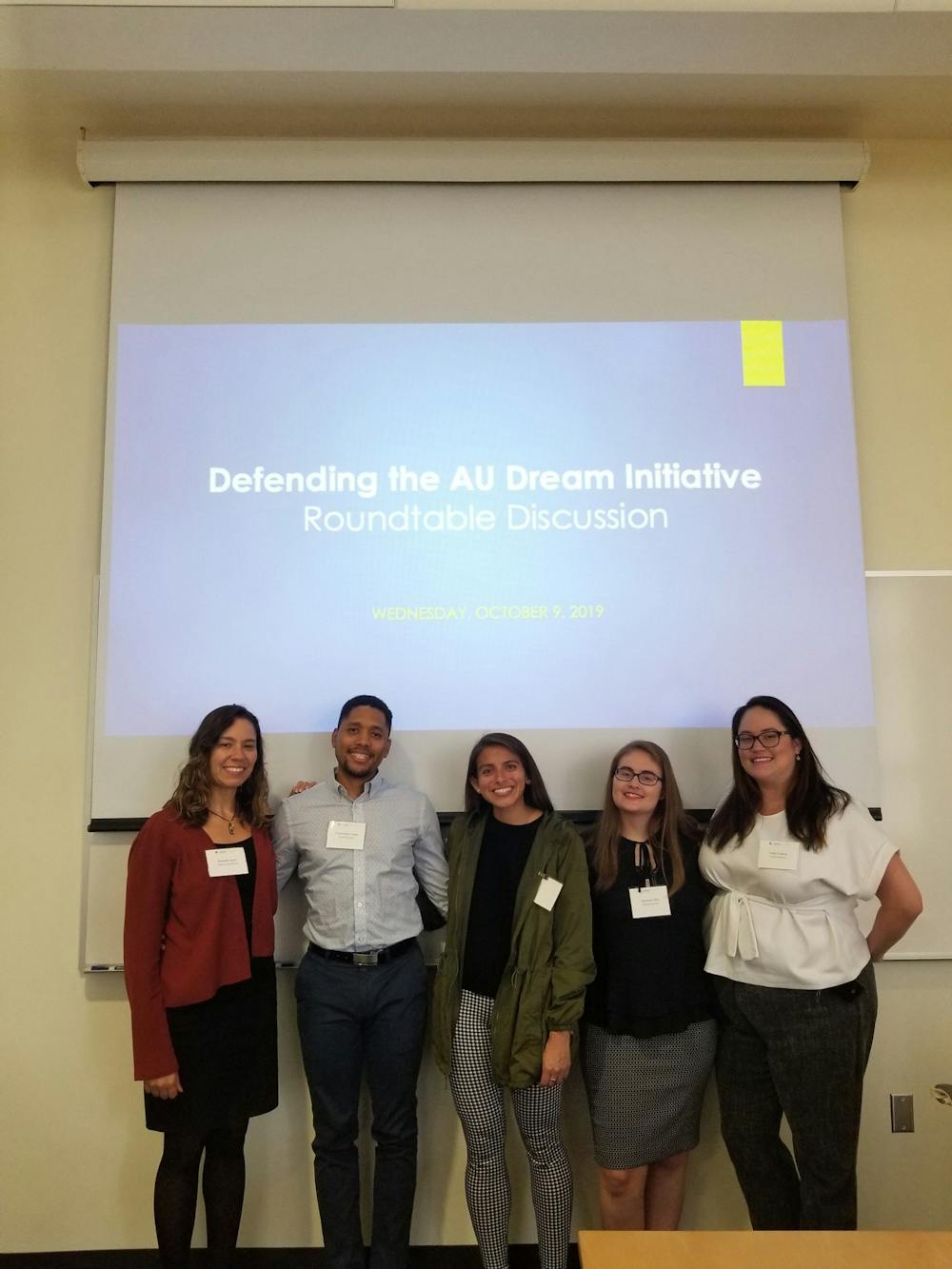This past summer, a program was launched in an effort to help undocumented college students in America obtain citizenship. The American Dream initiative Program, in partnership with the Immigration Justice Clinic, aims to help students become citizens while still getting a college education in the D.C. metropolitan area.
The funding for the program came from William I. Jacobs, the AU alum who donated the Jacobs Fitness Center. The initiative started after President Trump sought to end the Deferred Action for Childhood Arrivals (DACA) program last year according to supervising attorney Michelle Assad.
Jayesh Rathod, the director of the Immigrant Justice Clinic at WCL, says the primary purpose of any clinic is to provide students with the opportunity to develop skills and professional values by working with real clients.
“So we see it as an important training opportunity for students who are about to embark on careers in immigration law,” she said.
While the clinic largely focuses on all types of cases within immigration law, the AU Dream Initiative focuses on cases with undocumented youth, namely dreamers and DACA recipients, to help them maintain their protective status or find pathways to citizenship.
The initiative is connected to AU in terms of both money and education; the goal is to raise funds for undocumented students and DACA recipients, while also creating a new program for graduate law students.
In a small classroom setting, graduate students and professors study cases seminar-style, dedicating many hours after class to the undocumented students they represent.
“Our mission is to provide consultations or full legal representation to currently enrolled undergraduate and graduate students in the DC metropolitan area who are documented or undocumented, but not yet citizens,” Assad says.
The staff of the program also strives to one day represent the immediate family members of undocumented students, as many of them rely on their families for monetary and emotional support.
The program, despite being young, has overcome challenges posed by President Trump’s DACA revocation. Instead of limiting them, it further motivated the students and staff.
The program is “humanitarian-based, and we’re still doing outreach,” says Assad. In order for undocumented students to use the resources the initiative offers, trust must first be created within communities. Nevertheless, there has been a large presence of international students seeking help in the program, hoping to speed up the process or to overcome difficulties in achieving citizenship.
There is a broader mission than simply helping students monetarily and legally. It’s about “students helping other students achieve their dreams,” Assad says.
Assad said establishing stability is key for these students, in order for them to be successful and have a career.
“We want them to not only be stable in their status but also get through college,” Assad said. “Getting through college is very difficult especially for undocumented students who might not have the financial aid students with lawful status have. We hope that we can help them find a more stable way to stay in the U.S. and obtain their education.”
frahman@theeagleonline.com and smattalion@theeagleonline.com
This article originally appeared in The Eagle's December 2019 print edition.





